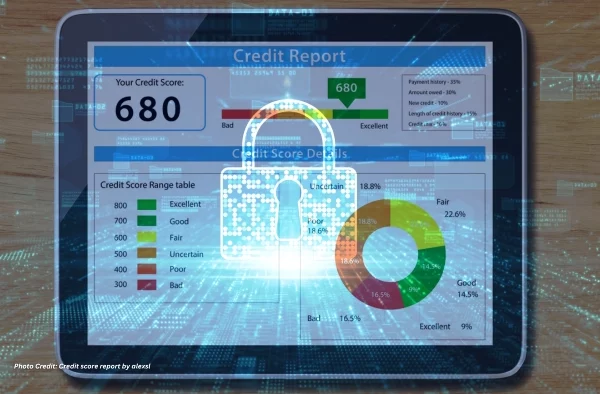Digital government protects credit data privacy
Share

The ongoing evolution of the digital landscape raises concerns about safeguarding credit reporting data among public sector entities, financial institutions, and consumers. Artificial intelligence (AI), cloud storage, and data analytics increasingly shape the credit reporting framework, introducing new challenges for maintaining robust data privacy and cybersecurity measures.
The Office of the Australian Information Commissioner (OAIC) indicates that credit reporting systems in Australia currently undergo substantial transformations. “With the emergence of new technologies and new players in the credit space, privacy protections must be continually updated to safeguard Australians’ sensitive information,” stated Carly Kind, Privacy Commissioner of the OAIC. “Our role as the regulator is to ensure that privacy standards are upheld while accommodating the dynamic needs of the credit reporting environment.”
Privacy in the digital age
Buy Now Pay Later (BNPL) providers have emerged, and telecommunications and utility companies have integrated into the credit system, introducing significant privacy concerns. Adding these entities, which the Privacy Act did not originally consider, raises potential concerns about data security and consumer privacy.
A recent report from the Australian Securities and Investments Commission (ASIC) highlights the challenges of incorporating new financial products into existing regulatory structures. Recent developments spark apprehension about how emerging entities manage consumer data. These entities may lack the necessary tools to enforce the strict privacy regulations mandated by law.
“The introduction of new credit products and services has changed the landscape significantly, creating both opportunities and risks,” stated ASIC. “Ensuring the privacy of credit reporting data in this environment requires a careful balance between innovation and the safeguarding of personal information.”
Enhanced privacy regulations
The Australian government and regulatory bodies proactively tackle these challenges by implementing and enforcing enhanced privacy protections. The OAIC recently sanctioned important revisions to the Credit Reporting Code (CR Code) to improve transparency and accountability in how credit reporting bodies (CRBs) manage consumer data.
The revisions include stronger audit standards for CRBs and clearer protocols for handling sensitive information, especially in cases of fraud or domestic violence. A “soft enquiries” framework is delayed for further evaluation, but it remains a key part of ongoing initiatives that empower consumers with better oversight of their credit information.
“These changes are designed to provide greater transparency and ensure that industry participants are meeting their privacy obligations,” explained the OAIC. “For instance, the new rules will allow CRBs to provide more detailed reports on their audits, enabling us to monitor compliance more effectively.”
Strengthening data security
As Australia’s credit reporting framework evolves in the digital era, data privacy and cybersecurity gain unprecedented significance. As credit reporting systems increasingly rely on artificial intelligence (AI), data analytics, and cloud storage solutions, they face a variety of emerging risks and challenges. These technologies advance data processing and insights, but they also raise the risk of data breaches, cyber attacks, and unauthorised access to sensitive financial information.
To safeguard the personal and financial information of Australians, credit reporting bodies and associated entities must adopt stringent data governance practices, ensuring they adhere to privacy regulations and industry benchmarks. Generative AI, data modeling, and data science redefine the credit reporting landscape, prompting a need for robust security measures to protect against misuse and unauthorised access. Industry leaders must focus on enhancing network security and implementing cybersecurity best practices to protect against the increasingly sophisticated threats posed by malicious cyber activities.
The OAIC actively oversees these risks, ensuring that credit providers and credit reporting bodies uphold exemplary standards of privacy and cybersecurity compliance. The OAIC addresses systemic non-compliance issues by improving transparency and reinforcing regulatory oversight, fostering trust in the management of sensitive credit information.
Australia examines its credit reporting framework, focusing on adjustments to new technological developments and the evolving landscape of cybersecurity threats. Ongoing assessments of Part IIIA of the Privacy Act and regulatory reforms will maintain robust and adaptable privacy protections in light of these developments. The public sector must remain flexible in managing the interplay between innovation and strong data governance. It should protect consumer rights while enabling the responsible implementation of new financial products and services.
Australian regulators and industry stakeholders prioritise safeguarding credit reporting data as a key concern moving forward. As digital transformation accelerates, prioritising data privacy and implementing strong cybersecurity measures will become essential for building consumer trust and upholding the integrity of the credit reporting system. Leaders in the public sector must focus on establishing robust data governance frameworks and implementing effective cybersecurity protocols to safeguard against breaches and maintain privacy standards.

Justin Lavadia is a content producer and editor at Public Spectrum with a diverse writing background spanning various niches and formats. With a wealth of experience, he brings clarity and concise communication to digital content. His expertise lies in crafting engaging content and delivering impactful narratives that resonate with readers.




Today’s Pick
11th Annual Aus Goverment Data Summit
April 1, 2025
7th Annual NZ Government Data Summit
May 7, 2025
3rd Public Sector Comms Week
May 14, 2025
Subscribe
We send emails,
but we do not spam
Join our mailing list to be on the front lines of healthcare , get exclusive content, and promos.
AI analytics appointment Australia Australian boost boosts business businesses covid-19 cyber attack cybersecurity cyber security data data breach data management defence Digital employment enhance enhances fraud funding governance government grants infrastructure Innovation Lockdown management new zealand NSW NZ online privacy public Public Sector queensland renewable energy scams security Social Media Technology telecommunications victoria
-

Queensland advocates sustainable infrastructure development
Infrastructure, News
-

Set data in motion for dynamic, interactive citizen services
Data Management, Sponsored Story
-

Migrants not to blame for Australia’s housing crisis
Local Government, Opinion
-

Navigating the complexities of Australian visa applications
Digital Government, Local Government, Opinion
Show More-

Effects of ineffective communication in the workplace
Communications, Personal Development
-

7 ways you can enhance your personal development skills
News, Personal Development
-

5 advantages of working in the public sector
News, Personal Development, Professional Development
-

7 causes of communication issues in the workplace
Communications, News, Personal Development
Show MoreLast Viewed